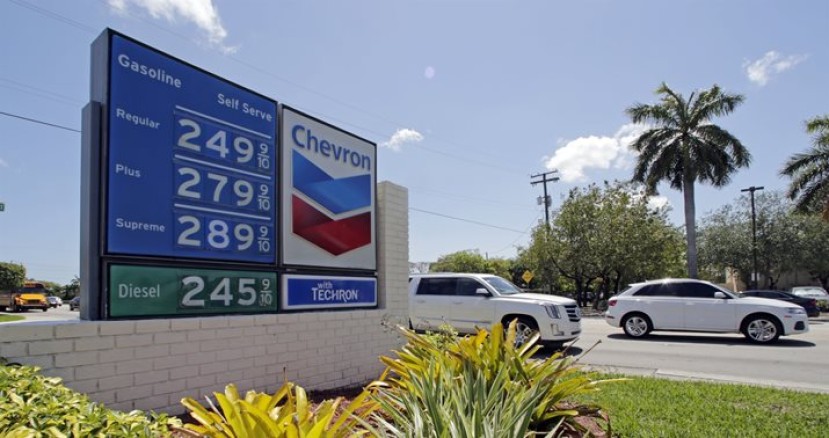
Hot Air 16/07/2018

Photo: Hot Air
It didn’t get the headlines that Brett Kavanaugh and Donald Trump got this week. Heck, it didn’t even get the headlines that Steve Donziger used to get earlier in his career, after the attorney scored a $8.6 billion judgment against Chevron in Ecuador. On Tuesday, though, the state of New York yanked Donziger’s law license as a direct result of the fraudulent operation that produced the judgment:
An attorney who won an $8.6 billion award in an Ecuadoran court against Chevron Corp. over pollution of the Amazon rain forest later found to be obtained by coercion, fraud and bribery has lost his law license.
Steven Donziger is suspended from practicing law in New York state until further notice based on findings made in March 2014 by a federal trial court, a New York appeals court said July 10.
The 2014 findings of U.S. District Judge Lewis Kaplan are “uncontroverted evidence of serious professional misconduct which immediately threatens the public interest,” the appeals court said.
The only surprise was that it took four years for the state to act since Kaplan’s ruling. It’s been a year since the Supreme Court allowed a 2016 2nd Circuit appellate ruling stand that barred the enforcement of the award, thanks to the “deceit” involved. The appellate court rulingextensively recapped the findings of corruption involved in Donziger’s operation and remains perhaps the best summary of the case. A few of the section titles will give the flavor of Donziger’s well-established pattern of deceit and manipulation:
The district court ruled that Donziger’s operation “constituted a RICO enterprise,” and that Donziger himself had conducted it “in a pattern of racketeering activity. … If ever there were a case warranting equitable relief with respect to a judgment procured by fraud, this is it.” The appellate court ruling agreed:
The record in the present case reveals a parade of corrupt actions by the LAPs’ legal team, including coercion, fraud, and bribery, culminating in the promise to Judge Zambrano of $500,000 from a judgment in favor of the LAPs. The Appeal Division’s Opinion provides no basis for an inference that the Lago Agrio Judgment was not the result of those corrupt acts, given its denoscription of Judge Zambrano as having reached his decision without “assess[ing]” discrete “facts,” without following “concrete, express legal rule[s],” and without “consider[ing]” the “economic opinions or parameters that appear from the trial.” And given that the Appeal Division in its opinion (a) sets out no findings or damages assessments or calculations of its own, (b) approves Judge Zambrano’s approach as “sound,” “appropriate,” and presenting “no[] . . . reasons to modify what was ordered in the lower court’s judgment,” and (c) “ratifie[s]” Judge Zambrano’s award “in all its parts,” we conclude that Chevron’s $8.646 billion judgment debt, as approved by the Appeal Division, is clearly traceable to the LAPs’ legal team’s corrupt conduct.
With all of that on the record, affirmed in a 2014 judgment, upheld by the appellate court in 2016, and allowed to stand by the Supreme Court last year, one has to wonder how Donziger’s license lasted as long as it did. In fact, one has to wonder how Donziger hasn’t yet been prosecuted for his actions in the Chevron Shakedown.
Bloomberg’s Joe Nocera still has some sympathy for Donziger, who claims he’s being railroaded by Chevron, but even that sympathy has its limits. Nocera concludes that Donziger has “no one to blame but himself”:
In an email he once wrote to me, Donziger complained that he was “the target of what is probably the most well-funded corporate retaliation campaign in U.S. history.” And you know what? He’s probably right. Chevron employed an army of lawyers from the pricey firm of Gibson, Dunn & Crutcher. It sent private investigators to Ecuador. It forced Donziger’s experts to retract their own report. And the law firm of Squire Patton Boggs actually apologized to Chevron, and paid it $15 million, for its role in defending Donziger.
But Donziger has no one to blame but himself. I don’t doubt that Donziger had honorable motives when he began the case. But as he realized that Chevron was not going to fold — and, perhaps, that his case was not as big or as airtight as he had originally thought — he lost his ethical compass. Chevron nailed him for it. …
Although Donziger vows to press on, the suspension of his law license could well be the end of this saga. After 25 years, the only moral of this story is that whether or not corporations are evil, if you are going to take them on, you’d better have the goods. And you’d better play by the rules.
Read more here
Fuente OriginalNotas relacionadas